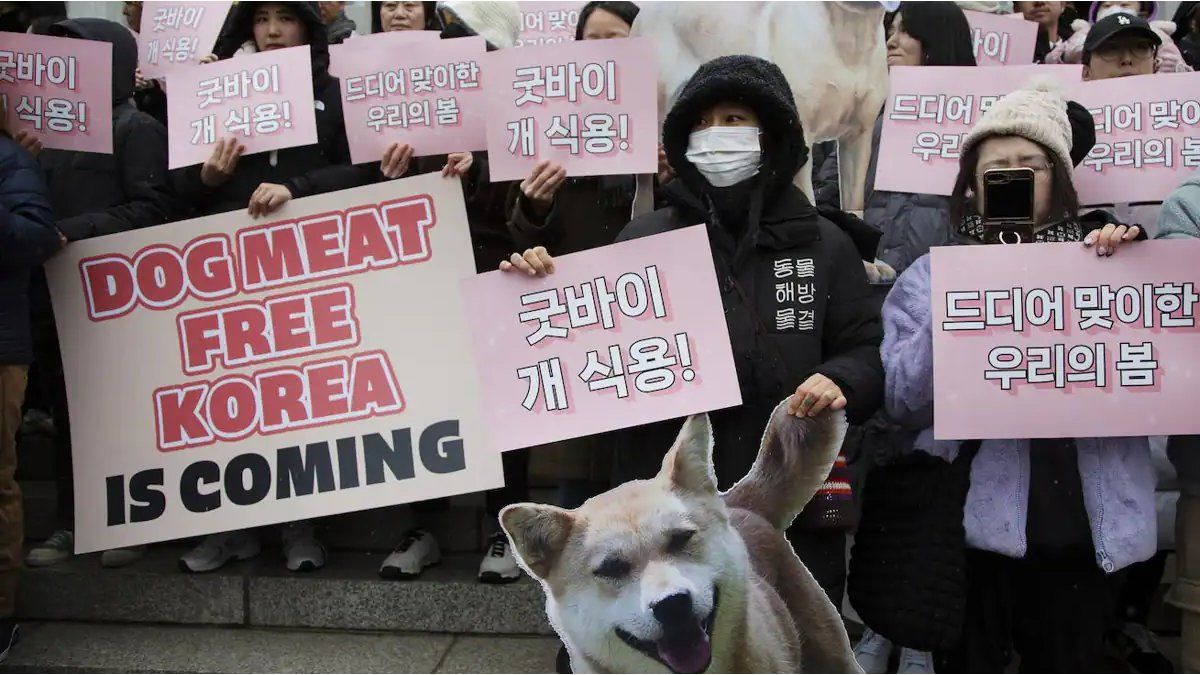With 208 votes in favor and none against, the National Assembly of South Korea banned the dog meat trade. The new law must receive the final approval of the president Yoon Suk Yeol and, in three years, it will come into force.
This way, the breeding and the slaughteras well as the sale of his meat for him consumptionwill be punished by law. Penalties range from fines 30 million won ($23,000) up to three years in prison.
“South Korea refuses to eat dogs”
For many years, dog meat was part of the south korean cuisine. It is estimated that consumption reached million dogs annuallyalthough in recent years this number has been drastically reduced, in parallel with a growth in the adoption of these animals as pets.
dog walk korea.avif
The Government will financially compensate those farms that are dedicated to breeding dogs.
AP
Currently, the new generations They left aside this practice that is already taboo among urban youth. For their part, animal protection organizations considered the practice as “shameful for the country” and increased their pressure for the government to ban this market.
The demand for this fight was strengthened with the support of the President Yoon. Recognized as an animal lover, Yoon and the first lady, Kim Keon Heethey not only adopted many rescued animals, but also outlined open criticism to the dog meat consumption.
In a survey conducted by an animal welfare organization, nine out of ten people in the Asian country they declared that they were not going to eat dog meat in the future. “The majority of Korean citizens they refuse to eat dogs and they want to see this suffering restricted to history books and today our politicians have acted decisively to make this a reality,” he declared in a statement. Jung Ah Chaeexecutive director of Humane Society International/Korea.
The dog meat industry in South Korea
For many years, dog meat has been sold in South Korea. It is estimated that the consumption of million dogs annually and there are around 1,100 farms who raise hundreds of thousands of dogs annually, according to government data.
This is not the first time attempts have been made to legislate this type of consumption. In previous attempts, governments encountered the farmers opposition who were dedicated to breeding of these animals for consumption.
In this case, producers were included in the bill. The National Assembly of South Korea contemplated a series of compensations to those farms that work in this market, so that they can engage in another activity.
Source: Ambito




